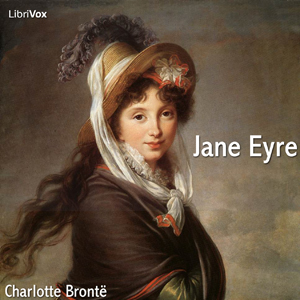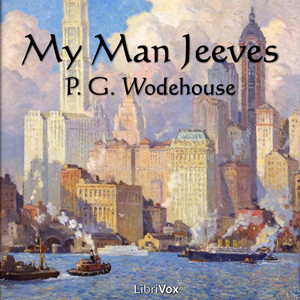The Narrative of Arthur Gordon Pym of Nantucket is Edgar Allan Poe’s only complete novel, published in 1838.The work relates the tale of the young Arthur Gordon Pym who stows away aboard a whaling ship called Grampus. Various adventures and mis-adventures befall Pym including shipwreck, mutiny and cannibalism. The story starts out as a fairly conventional adventure at sea, but it becomes increasingly strange and hard to classify in later chapters, involving religious symbolism and the Hollow Earth. Summary from Wikipedia
27 episodes
Robin Hood is the archetypal English folk hero; a courteous, pious and swashbuckling outlaw of the mediæval era who, in modern versions of the legend, is famous for robbing the rich to feed the poor and fighting against injustice and tyranny. He operates with his "seven score" (140 strong) group of fellow outlawed yeomen – named the Merry Men. He and his band are usually associated with Sherwood Forest, Nottinghamshire.The Victorian era generated its own distinct versions of Robin Hood. The traditional tales were often adapted for children, most notably in Howard Pyle's Merry Adventures of Robin Hood. These versions firmly stamp Robin as a staunch philanthropist, a man who takes from the rich to give to the poor.(Summary from Wikipedia)
22 episodes
If you like Jane Austen, you will probably like this book!Mrs. Gaskell, as she was often referred to, is considered one of the greatest British novelists of the Victorian era. She was one of the earliest novelists ever to use dialect in her works, finding often that no word but the vernacular would suffice to convey the meaning she wanted to achieve. She was the author of The Life of Charlotte Brontë, a much-acclaimed and sometimes-reviled biography of her friend and peer.Wives and Daughters revolves around Molly Gibson, only daughter of a widowed doctor living in a provincial English town in the 1830s. The novel was first published in the Cornhill Magazine as a serial from August 1864 to January 1866. When Mrs Gaskell died suddenly in 1865, it was not quite complete, and the last section was written by Frederick Greenwood. (Summary from Wikipedia)
61 episodes
This anthology of poetry, published in 1904, contains such favorites as The Raven, My Shadow, and The Village Blacksmith, as well as many lovely poems that may be unfamiliar. Most of the poems in this collection are short enough for children to memorize.
81 episodes
"The Art of War is a Chinese military treatise written during the 6th century BC by Sun Tzu. Composed of 13 chapters, each of which is devoted to one aspect of warfare, it has long been praised as the definitive work on military strategies and tactics of its time. The Art of War is one of the oldest and most famous studies of strategy and has had a huge influence on both military planning and beyond. The Art of War has also been applied, with much success, to business and managerial strategies." (summary from Wikipedia)
7 episodes

The Three Musketeers (Les Trois Mousquetaires) is a novel by Alexandre Dumas, père. It recounts the adventures of a young man named d'Artagnan after he leaves home to become a musketeer. D'Artagnan is not one of the musketeers of the title; those are his friends Athos, Porthos, and Aramis -- inseparable friends who live by the motto, "One for all, and all for one".
The Three Musketeers was first published in serial form in the magazine Le Siècle between March and July 1844. Dumas claimed it was based on manuscripts he had discovered in the Bibliothèque Nationale. It was later proven that Dumas had based his work on the book Mémoires de Monsieur D'Artagnan, capitaine lieutenant de la première compagnie des Mousquetaires du Roi (Memoirs of Mister D'Artagnan, Lieutenant Captain of the first company of the King's Musketeers) by Gatien de Courtilz de Sandras (Cologne, 1700).
Dumas' version of the story covers the adventures of D'Artagnan and his friends from 1625 to 1628, as they are involved in intrigues involving the weak King Louis XIII of France, his powerful and cunning advisor Cardinal Richelieu, the beautiful Queen Anne of Austria, her English lover, George Villiers, 1st Duke of Buckingham, and the Siege of La Rochelle. Adding to the intrigue are the mysterious Milady de Winter, and Richelieu's right-hand man, the Comte de Rochefort. (summary from wikipedia)
Get Twenty Years After here.
Get The Man in the Iron Mask here.
69 episodes
Ce quarante-troisième livre de la Bible, traduite par Louis Segond, au XIXe siècle et publiée au début du siècle suivant, nous est parvenu comme étant le témoignage du disciple que Jésus aimait.
L'auteur a écrit ces choses « afin que vous croyiez que Jésus est le Christ, le Fils de Dieu, et qu'en croyant vous ayez la vie en son nom ».(Summary by Ezwa)
5 episodes
"I'd tasted blood, and it was all over with me. Why should I work when I could steal? Why settle down to some humdrum uncongenial billet, when excitement, romance, danger and a decent living were all going begging together?"- A. J. Raffles, The Ides of March.The Amateur Cracksman is the first collection of stories about A. J. Raffles, gentleman, cricketer, and thief. After stopping his old school friend, Bunny Manders, from a desperate attempt at suicide, Raffles introduces the unsuspecting Bunny to a new way of earning a living, burglary. Though frequently horrified by Raffles's actions, the conscience-stricken Bunny stands by him through all their adventures, firm to his promise, "When you want me, I'm your man!" (Summary by Kristin Hughes)
8 episodes
A Girl of the Limberlost, a novel written by the American writer and naturalist Gene Stratton-Porter, was first published in August, 1909. The story takes place in Indiana, in and around the Limberlost Swamp, during the early 20th century. (Summary from Wikipedia)
25 episodes
The golden section is a line segment sectioned into two according to the golden ratio. The total length a+b is to the longer segment a as a is to the shorter segment b. In mathematics and the arts, two quantities are in the golden ratio if the ratio between the sum of those quantities and the larger one is the same as the ratio between the larger one and the smaller. The golden ratio is a mathematical constant, approximately 1.6180339887.... At least since the Renaissance, many artists and architects have proportioned their works to approximate the golden ratio—especially in the form of the golden rectangle, in which the ratio of the longer side to the shorter is the golden ratio—believing this proportion to be aesthetically pleasing. Mathematicians have studied the golden ratio because of its unique and interesting properties. (From Wikipedia)
1 episodes
Jane Eyre is not your typical romance. It is a story of a woman who struggles with a world in which she doesn't quite fit. Once finished with her schooling, and with no family that really cares of her she strikes out on her own as a governess. Jane Eyre searches for love, someone to care for her, and someone to care for, and finds it in unexpected places. (summary by Kri)
39 episodes
This book of poems, written between 42 en 39 BC, was a bestseller in ancient Rome, and still holds a fascination today. Held to be divinely inspired not only by the Romans themselves, but by the Medieval Catholic church, The Eclogues is one of the most beloved collections of Latin short poetry. (Summary by Caeristhiona)This recording is done in the original Latin, in the form of a dramatic reading: in each eclogue, every character is read by a different Librivox volunteer. Two eclogues are included twice - giving you a "Choice of Voice" !
12 episodes
This is a true account by American woman journalist who, in 1889, set out to see whether she could beat the fictional journey in Jules Verne’s 1873 novel, Around the World in Eighty Days. Wearing one dress and carrying one handbag, Elizabeth Cochrane Seaman (pen name “Nellie Bly”), reported her travels back to avid readers in America. (Summary by Mary Reagan)
18 episodes
Bertram Wooster is an English gentleman living in New York, who seems to get himself into all sorts of jams. It’s up to his manservant Jeeves to come up with the plan to save the day from unpleasant houseguests, stingy uncles, broken hearts, and hard-partying aunts. (Summary by Mark Nelson)
8 episodes
A classic tale of what comes to those whose hearts are hard. In a series of ghostly visits, Scrooge visits his happy past, sees the difficulties of the present, views a bleak future, and in the end amends his mean ways. (Summary written by Kristen McQuillin)
5 episodes

Come and hear the strange tail of The Boss Hank Morgan, a modern day (at the time of publication) Connecticut Yankee who inexplicably finds himself transported to the court of the legendary King Arthur (as the title of the book implies). Hank, or simply, The Boss, as he comes to be most frequently known, quickly uses his modern day knowledge and education to pass himself off as a great magician, to get himself out of all sorts of surprising, (and frequently amusing) situations, as well as to advance the technological and cultural status of the nation in which he finds himself.
In the rather un-subtle sub-text of the story, Twain uses The Boss to express a surprisingly pragmatic and frequently contradictory philosophy. The Boss explores the relative merits of Democracy, and Monarchy, he expresses his views on the “Nature v. Nurture” debate, he frequently speaks forcefully against an established Church, but just as strongly advocates for religion and a variety of churches (just not a compulsory one) and he devotes at least one afternoon to introducing his companions to the concept of inflation. In a far more subtle, yet no less forceful manner, the Boss shares with the reader some views about taxation, slavery (both literal and wage slavery), trade unions, the origins of the German language, the nature of marriage, and probably most powerfully, death.
It is a tall order for a relatively brief text, but Twain manages it all with surprising clarity. No one will agree fully with the Boss on all of these matters, and I would be surprised if Twain himself would. In fact the Boss’s views are so pragmatic, and often contradictory, the reader is left to wonder if Twain himself is alternately speaking through the Boss, and setting him up as a straw man. Either way it is a delightful story and a great piece of American Literature, to say nothing of an excellent argument for education.
(Review written by Steve Andersen)
45 episodes
Two men visting the US from London meet a pair of charming women who return the visit the following year in London. Romantic intrigues, miscommunication and cultural faux pas abound in this short but delightful novel.
(Summary written by Kristen McQuillin)
6 episodes
Lucy Maud Montgomery’s classic children’s novel, Anne of Green Gables tells the story of a red headed orphan girl with a personality you can’t help but love. Despite her “tragical” past, Anne’s optimism and imagination have helped her to always see the best in things. Anne’s life changes considerably when she is accidentally adopted by the Cuthberts, a brother and sister who thought they were getting a boy to help out on the farm. The Cuthberts decide Anne will have to be sent back to the orphange but before they know it, she has begun to work her way into their hearts. (Summary by Annie Coleman)
38 episodes
In der Erzählung “Auf der Galerie” beschreibt Franz Kafka in zwei komplett gegensätzlichen Perspektiven die Darbietung einer Künstlerin in der Manege eines Zirkus und das Leiden des Galeriebesuchers durch diesen beiden Darbietungen.
1 episodes
Beowulf. [Translated by Francis Barton Gummere].This is a short but beautiful book, and the Gummere translation really captures the feel of the Old English. Beowulf tells the story of a mysterious young warrior who saves the Spear-Danes from the terrible monster Grendel and his venomous mother. Long a mainstay of English Literature 101 courses at universities around the world, it is not only one of the oldest, but one of the most exciting English folktales ever invented. (Summary by Caeristhiona)
8 episodes
First published in 1886 at Nietzsche’s own expense, the book was not initially considered important. In it, Nietzsche denounced what he considered to be the moral vacuity of 19th century thinkers. He attacked philosophers for what he considered to be their lack of critical sense and their blind acceptance of Christian premises in their considerations of morality and values. Beyond Good and Evil is a comprehensive overview of Nietzsche’s mature philosophy.
(Summary from Wikipedia)
10 episodes
Wilhelm Busch war einer der bedeutendsten humoristischen Zeichner und Dichter Deutschlands. Er gilt wegen seiner satirischen Bildergeschichten (u.a. Max und Moritz) in Versen als einer der Urväter des Comics. Die Bilder zu diesem Buch sind im Online Text enthalten. (Zusammenfassung von Wikipedia)
51 episodes
Black Beauty is Anna Sewell’s first and only novel. The story is told in the “first person” (or first horse) as an autobiographical memoir of a highbred horse named Black Beauty, from his carefree days as a foal on an English farm, to his difficult life pulling cabs in London, to his happy retirement in the country. Along the way, he meets with many hardships and recounts many tales of cruelty and kindness. Each short chapter recounts an incident in Black Beauty’s life containing a lesson or moral typically related to the kindness, sympathy, and understanding treatment of horses. (Summary from wikipedia.org)
49 episodes
Esther appears in the Bible as a woman of deep piety, faith, courage, patriotism, and caution, combined with resolution; a dutiful daughter to her adopted father, docile and obedient to his counsels, and anxious to share the king’s favour with him for the good of the Jewish people. That she was raised up as an instrument in the hand of God to avert the destruction of the Jewish people, and to afford them protection and forward their wealth and peace in their captivity, is manifest from the Scripture account. (summary by wikipedia)
3 episodes
The Cathay poems appeared in a slim volume in 1915. They are, in effect, Ezra Pound’s English translations/interpretations from notebooks written by the Japanese scholar Ernest Fenollosa. Pound, not knowing any Chinese or Japanese at all, promptly created a new and somewhat complex style of translation, as he had done with words from several other languages. The Cathay poems are primarily written by the Chinese poet Li Po, refered to throughout these translations as Rihaku, the Japanese form of his name. These poems came to have a profound influence on 20th Century poetry, spawning, among other things, the Imagist movement, and helped in the generation of widespread interest in Asian literature and thought. Also included in this collection are two poems from Pound’s 1912 collection Ripostes. “The Seafarer” is another of Pound’s experiments in translation, this one from the Anglo-Saxon. (Summary by Alan Davis-Drake)
17 episodes
LibriVox volunteers bring you fifteen different recordings of A Vagabond Song, by Bliss Carman, to celebrate the Autumnal Equinox. This was the weekly poetry project for the week of September 24th, 2006.
15 episodes
Dear Enemy is the sequel to Jean Webster's novel Daddy-Long-Legs. The story as presented in a series of letters written by Sallie McBride, Judy Abbott's college mate in Daddy-Long-Legs. Among the recipients of the letters are the president of the orphanage where Sallie is filling in until a new director can be installed, his wife (Judy Abbott of Daddy-Long-Legs), and the orphanage's doctor (to whom Sallie addresses her letters: "Dear Enemy"). (Summary from Wikipedia)
24 episodes
This is the continuing story of Anne Shirley and the third book in the Anne of Green Gables series. In it Anne attends Redmond College where she is studying for her BA. She has many trials and tribulations along the way, including some romance. In Anne of the Island the reader is also introduced to many new characters, that in the true sense of Anne are also "kindred spirits". (Summary from Wikipedia)
Previous books in this series:
1 Anne of Green Gables
2 Anne of Avonlea
Further books in this series:
5 Anne's House of Dreams
7 Rainbow Valley
8 Rilla of Ingleside
41 episodes

“Secret Chambers and Hiding Places” is a collection of concealments and their uses, almost all within England, although a very few passages and chambers in continental Europe are mentioned, Jacobite hidey holes in Scotland, while the final chapter of the book covers Bonnie Prince Charlie’s wanderings around Scotland, among caves and other hiding places. Most chapters are devoted to historical events; such as the the seventeenth century persecution of roman catholics (with many large houses having specially constructed “priests’ holes”), or various unpopular monarchs and their hiding places. The text is scattered with legends and true stories, with occasional skeletons found, still hiding, long centuries after the searchers have left. The author describes hidden doors, passages, rooms and pits with enormous enthusiasm … and with considerable regret when he has to describe secret places lost to demolition or modernisation. You’ll wish you could wander the country, poking into the darkest recesses of every old house you find! (Summary by Peter Yearsley)
16 episodes

This week we’re marking the American Memorial Day with eleven readings of a John Donne poem. Memorial Day was conceived as a time to remember military men and women who had lost their lives in war. Kings and presidents come and go and some of the reasons that wars have come about are now lost from memory or are obscured in our history texts.
A consistent aspect of war is that those who fight them are not those who arrange them. The soldiers and sailors who suffer loss of limb, scarred minds or forfeit their lives mostly come from the lower and middle rungs of our societal ladder. They are our sons and daughters, husbands and wives, fathers and mothers, brothers and sisters.
Once gone, it is the family who notices the empty chair at the family table while society at large knows not their name. Death has captured them and taken them forever from our midst. It has become personal and not a vague philosophical idea. The theme of Donne’s poem is that, though Death is irresistible, it has no cause to be proud. The human spirit and its hope for redemption is indomitable. This was the weekly poetry project for the week of May 27th, 2006.
(Summary by Robert Garrison)
11 episodes
On June 8, 1765 James Otis, supported by the Massachusetts Assembly sent a letter to each colony calling for a general meeting of delegates. The meeting was to be held in New York City in October. Representatives from nine colonies met in New York. Though New Hampshire, Virginia, North Carolina and Georgia did not send delegates, the Assemblies of those missing colonies nonetheless agreed to support the works of the Congress. The meetings were held in Federal Hall in New York, and the delegates assembled on October 2. They spent less than two weeks in discussion and at their final meeting on October 19, 1765 adopted the Declaration of Rights and approved its use in petitions to the King and two letters to Parliament. The Declaration of Rights and Grievances raised thirteen points of colonial protest. (Summary from Wikipedia.org)
1 episodes
Das berühmte Märchen von Theodor Storm erzählt von einem kleinen Jungen, der Häwelmann hieß. Häwelmann schlief in einem Bett mit Rollen, “wenn er aber nicht müde war, so musste seine Mutter ihn darin in der Stube umherfahren”. - In der Nacht von der diese Geschichte handelt, schlief die Mutter aber so tief ein, daß sie sein Rufen nach “Mehr, mehr!” nicht mehr hören konnte. Und so baute sich Häwelmann aus seinem Nachthemd ein Segel und fuhr allein durch das Zimmer, die Stadt, den Wald und bis in den Himmel hinein, mit lehrreichen Konsequenzen.
(Zusammenfassung von Franziska)
1 episodes
In einer Nordseegemeinde taucht vor drohenden Sturmfluten und Deichbrüchen eine gespenstische Gestalt auf dem Deich auf. Der Geist reitet auf seinem Schimmel lautlos in die Fluten um dort unterzugehen. Das gesamte Dorf kennt dieses Zeichen seit über hundert Jahren. Der Erzähler aber nimmt die Gestalt während eines Sturmes wahr, ohne je davor von ihr gehört zu haben.
Da der Sturm zunimmt, sucht er Zuflucht in dem Gasthaus des Dorfes. Dort berichtet ihm der Schulmeister das Schicksal Hauke Haiens, des einstigen Deichgrafen, den sein hartes Schicksal zum “Schimmelreiter” machte. Immer wieder unterbrochen von den Geschehnissen in der Wirtsstube vermischt der Lehrer Fakten und Sage und zeigt so, wie die Legende entstand.
(Zusammenfassung von Felix)
7 episodes
Journey to the Interior of the Earth is an 1864 science fiction novel by Jules Verne (published in the original French as Voyage au centre de la Terre). The story involves a professor who leads his nephew and hired guide down a volcano in Iceland to the “center of the Earth”. They encounter many adventures, including prehistoric animals and natural hazards, eventually coming to the surface again in southern Italy. (Summary from wikipedia.org)
41 episodes
The novel tells of the troubles of a wealthy young girl, Sara Crewe, who is sent to an oppressive London boarding school during her father’s campaign in India. Thanks to Capt. Crewe’s money, Sara is treated as a little princess until, one day, word comes of her father’s tragic death. Miss Minchin, the school’s greedy headmistress, wastes no time in putting the now-penniless Sara to work for her room and board. It is only through the friendship of two other girls, her own resolute nature, and some astonishing luck that Sara eventually finds her way back to happiness. (Summary from wikipedia.org)
19 episodes
Der Struwwelpeter, zuerst erschienen als “Lustige Geschichten und drollige Bilder mit 15 schön kolorierten Tafeln für Kinder von 3-6 Jahren”, wurde 1845 von Heinrich Hoffmann als ein Kinderbuch für seine eigene Familie geschrieben. Es wurde als eine illustrierte Sammlung von Kindergeschichten sehr bekannt durch seine erste englische Übersetzung im Jahre 1848. Das Buch wird oft als brutal angesehen, da die Kinder in den Geschichten nicht notwendigerweise gut behandelt werden. Trotzdem hatte es einen Einfluß auf spätere Literatur. (Summary by Aldark and Rainer)
1 episodes
Jonathan Swift almost defines satire in this biting and brutal pamphlet in which he suggests that poor (Catholic) Irish families should fatten up their children and sell them to the rich (Protestant) land owners, thus solving the twin problems of starving children and poverty in one blow. When the “Proposal” was published in 1729, Swift was quickly attacked, and even accused of barbarity – the exact state the “Proposal” was written to expose. (Summary by Hugh)
1 episodes
Librivox volunteers bring you eight different readings of Walt Whitman’s A Noiseless Patient Spider, a weekly poetry project. (Summary by Annie Coleman)
8 episodes
Der Struwwelpeter, zuerst erschienen als “Lustige Geschichten und drollige Bilder mit 15 schön kolorierten Tafeln für Kinder von 3-6 Jahren”, wurde 1845 von Heinrich Hoffmann als ein Kinderbuch für seine eigene Familie geschrieben. Es wurde als eine illustrierte Sammlung von Kindergeschichten sehr bekannt durch seine erste englische Übersetzung im Jahre 1848. Das Buch wird oft als brutal angesehen, da die Kinder in den Geschichten nicht notwendigerweise gut behandelt werden. Trotzdem hatte es einen Einfluß auf spätere Literatur. (Summary by Aldark and Rainer)
1 episodes
“Der tolle Mensch” ist der Aphorismus 125 aus dem dritten Buch der “Fröhlichen Wissenschaft” und befaßt sich mit dem Thema “Gott ist tot”. Der stilistisch dichte Aphorismus enthält Anspielungen an klassische Werke der Philosophie und Tragödie. Dieser Text lässt den Tod Gottes als bedrohliches Ereignis erscheinen. Dem Sprecher in diesem Text graut vor der Aussicht, dass die zivilisierte Welt ihr bisheriges geistiges Fundament weitgehend zerstört hat. Der unfassbare Vorgang des Todes Gottes würde gerade wegen der großen Dimension lange brauchen, um in seiner Tragweite erkannt zu werden. (Zusammenfassung von Wikipedia.de und Rainer)
1 episodes
Die Leiden des jungen Werther beschreibt die unglückliche Liebe eines jungen Mannes (Werther) zu einer verlobten, später verheirateten Frau. Der Roman ist aus einer radikal subjektiven Perspektive geschrieben: er besteht nur aus Briefen von Werther vor allem an einen Freund namens Wilhelm. Erst im letzten Teil des zweiten Buches tritt ein Erzähler hinzu. Anhand der Briefe kann der Leser sowohl dem Verlauf der Handlung als auch den Gefühlen Werthers folgen, der immer verzweifelter wird, bis es schließlich in einer Katastrophe endet.
Der Roman besteht aus zwei Büchern, die aber eher als zwei Teile eines einzigen Romans anzusehen sind.
(Zusammenfassung von Rainer)
11 episodes
Im Jahr 1599 sind die Niederlande von den Spaniern besetzt. Die Stadt Antwerpen ist bevölkert von italienischen Söldnern. Doch die Niederländer leisten Widerstand. Auf See ist der Wille der “Wassergeusen” ungebrochen und ihre Schlagkraft von den Besatzern gefürchtet. Am meisten graut ihnen jedoch vor dem Flaggschiff: Die schwarze Galeere…
(Zusammenfassung von Felix)
6 episodes
Librivox volunteers bring you twenty different readings of Caroline Elizabeth Sarah Norton’s I Do Not Love Thee, a weekly poetry project. (Summary by Annie Coleman)
20 episodes
This was the weekly poetry project for 14 May 2006. Spring’s flowers come and go all too quickly, but Wordsworth’s classic poem reminds us that their blessings last.
9 episodes
Librivox’s weekly poetry project for the week of January 29, 2006: This popular piece was voted Britain’s favourite poem in a BBC opinion poll in 1995.
(Summary from Wikipedia)
17 episodes
Librivox volunteers bring you seven different readings of John McCrae’s In Flanders Field, a weekly poetry project. (Summary by Annie Coleman)
7 episodes
As our weekly poem of 30-July-2006, “Jazz Fantasia” was a special challenge because it isn’t just about jazz, it IS jazz. The rhythm is central, but not so clearly defined, so we had to play around and improvise. Every reading is unique! (Summary by LauraFox)
17 episodes
A beautifully illustrated children’s picture book featuring Johnny Crow who made a garden in which a variety of animals do bizarre things in rhyme.Listen to the audio while you view the pictures on gutenberg.org (Summary by Jim)
1 episodes
Dating back to the 6th century BC, Aesop's Fables tell universal truths through the use of simple allegories that are easily understood. Though almost nothing is known of Aesop himself, and some scholars question whether he existed at all, these stories stand as timeless classics known in almost every culture in the world. This is volume 3 of 12. (Summary by Chip)
25 episodes
Dating back to the 6th century BC, Aesop's Fables tell universal truths through the use of simple allegories that are easily understood. Though almost nothing is known of Aesop himself, and some scholars question whether he existed at all, these stories stand as timeless classics known in almost every culture in the world. This is volume 4 of 12. (Summary by Chip)
25 episodes

















































